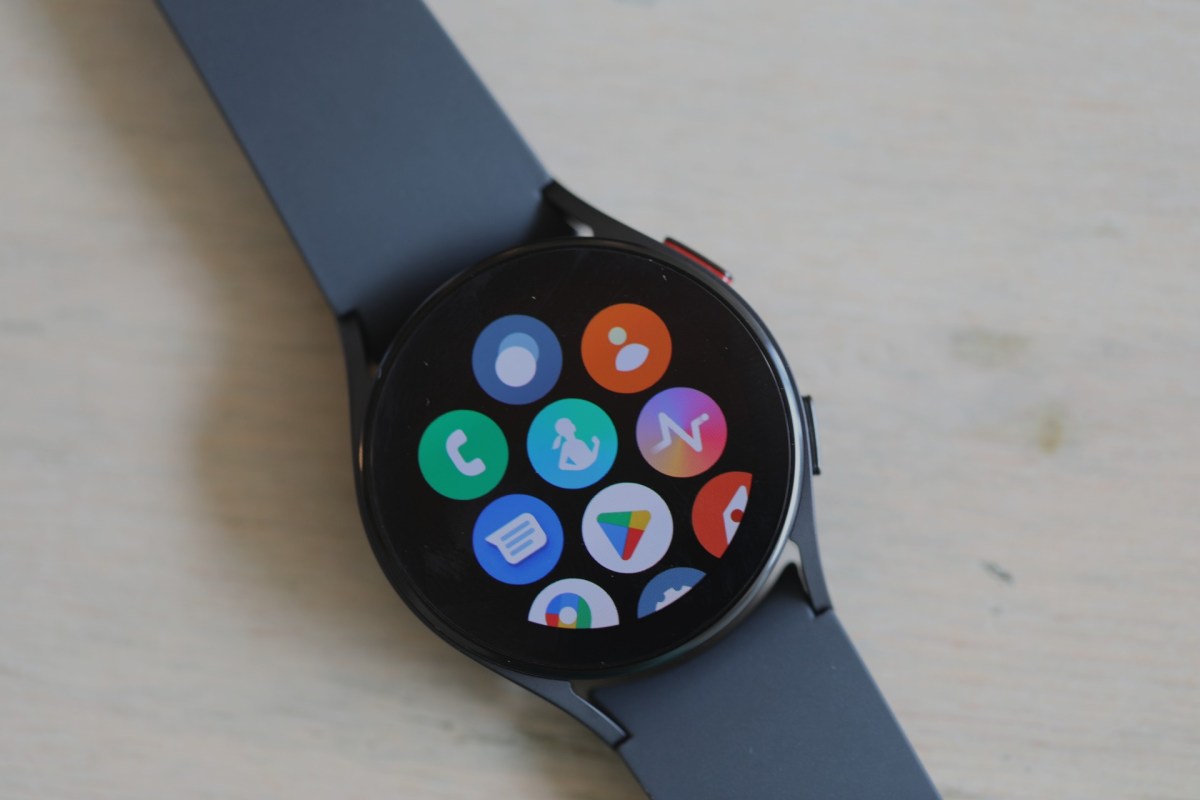Samsung’s Galaxy Watch5 will now offer improved period tracking features thanks to a new partnership with Natural Cycles that leverages the smartwatch’s temperature sensors to make better predictions. The launch follows last fall’s announcement of a new temperature sensor on the Apple Watch Series 8 that similarly allows wearers to improve their period predictions as well as view retrospective ovulation estimates when the watch is worn overnight.
According to Samsung, the advanced period-tracking features will become available to smartwatch owners across 32 countries globally, including North America, Europe, and Asia.
It explains that Natural Cycles has developed an algorithm that uses body temperature and other fertility indicators to make predictions about fertility. This will be used along with the Watch5’s new infrared sensor to track skin temperature changes overnight. The data is encrypted and stored on the device, Samsung says, where it’s used to power its Health app’s Cycle Tracking feature.
Samsung had been late to market to launch its own period tracking feature, only adding the option to its Health app in 2020, long after Apple, Fitbit, Garmin, and other third-party apps had done so. But the manual period tracking method is reliant on historical data to make predictions — and that can only go so far. Adding the ability to track temperature changes can improve its accuracy.
“The Natural Cycles app has helped millions of women around the world take control of their fertility and this partnership will allow Samsung to leverage our fertility technology to offer temperature-based cycle tracking through a smartwatch for the first time,” said Dr. Raoul Scherwitzl, co-founder and co-CEO of Natural Cycles, in a statement.
However, it’s worth pointing out that Apple cautions its own customers that the temperature-tracking features it introduced should not be used as birth control or to diagnose health conditions — even though it may track temperature changes that could be your first indication that other health problems may exist, like polycystic ovary syndrome or fibroids.
Plus, Apple says, overnight temperature tracking can be impacted by other factors, like the sleep environment, and it notes that body temperature naturally fluctuates when you sleep. Instead, Apple says temperature tracking is used to provide improved period predictions and retrospective ovulation estimates only.
Samsung doesn’t share those cautions in its own announcement, though, touting Natural Cycles’ ability to determine “each user’s unique fertility status.” Likely, a doctor would suggest this method on its own should not be used to determine fertility, we’d argue. But it could be useful in combination with other methods, including consistent a.m. basal temperature readings using a thermometer, other ovulation tests, and manually entered period tracker data.
Today’s news shows Samsung is attempting to keep up with a market where Apple has been leading. But since it’s rushing to compete on this front, it chose to bring in a partner instead of creating an algorithm of its own in-house.
It’s not the first time Samsung used a partnership to boost its Health app capabilities, either. The company previously announced a deal with Calm to upgrade the app’s Mindfulness section with content, for instance.
Samsung says the new skin temperature–based cycle tracking capabilities will come to the Samsung Health app on the Galaxy Watch5 and Watch5 Pro within the second quarter. Thirty-two markets will support this feature, including in Austria, Belgium, Bulgaria, Croatia, Cyprus, the Czech Republic, Denmark, Estonia, Finland, France, Germany, Greece, Hungary, Iceland, Ireland, Italy, Korea, Latvia, Lithuania, Luxembourg, the Netherlands, Norway, Poland, Portugal, Romania, Slovakia, Slovenia, Spain, Sweden, Switzerland, the U.K. and the U.S.
